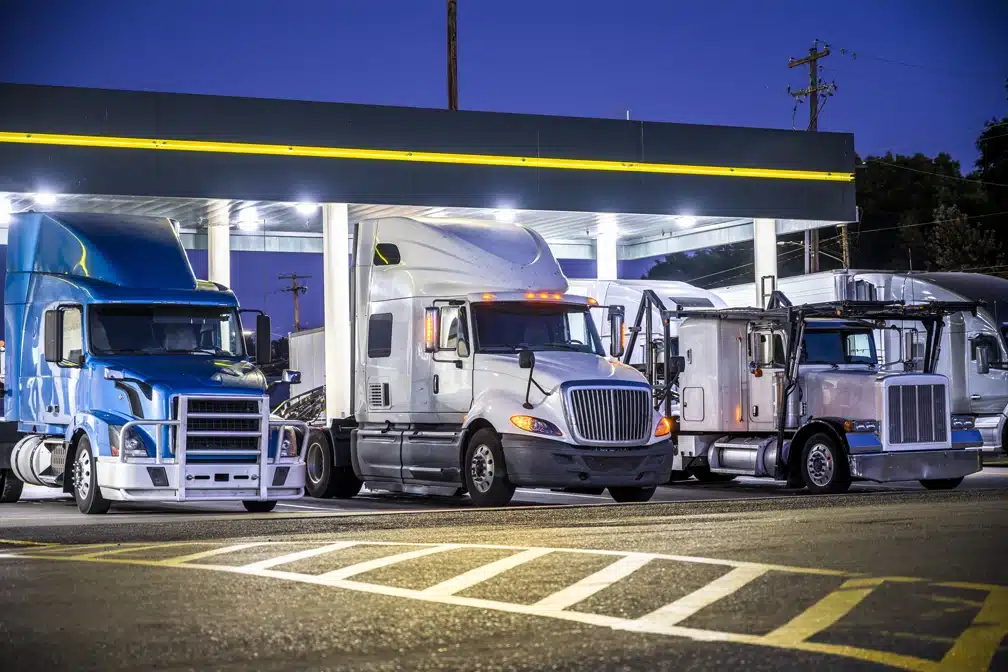Connell High School in Connell, Washington, has formally petitioned the FMCSA to allow students under 18 to obtain commercial learner's permits (CLPs).
Continue Reading
May 19, 2024 6:38 pm

Navigating the world of truck stops is an essential skill for over-the-road truckers. These stops are more than just places to refuel; they’re vital for rest, nourishment, and sometimes even a bit of social interaction. With the right approach, drivers can make the most out of their truck stop experiences. Here’s an expanded guide, incorporating general knowledge and industry practices, to help professional drivers navigate truck stops efficiently and courteously.
The first rule of thumb upon entering a truck stop is to reduce speed and proceed with caution. The mixed flow of vehicles and pedestrians creates a dynamic environment where the unexpected can happen. Adhering to the traffic pattern observed upon entry can prevent accidents and ensure a smooth operation for everyone involved.
Choosing the right parking spot can significantly impact your rest quality and ease of departure. Opting for a spot away from the main flow of traffic minimizes disturbance and accident risks. Backing into a parking space, although it might take extra time initially, will make your exit quicker and safer.
Respecting the need for efficiency at the fuel lanes is crucial. These spots are not intended for breaks. Quick fueling and moving on ensure that everyone gets their chance without unnecessary delays. This practice is not just about efficiency but also about respecting your fellow drivers’ time.
Privacy is a precious commodity for drivers. Avoid knocking on doors uninvited, as many drivers value their rest and downtime. For those looking to socialize, the truck stop’s interior spaces offer a more appropriate setting.
Discussing the details of your cargo is not advisable. Keeping cargo information private protects against potential theft and ensures security. Engage in conversations that are enriching and helpful without compromising your load’s safety.
Truck stops are shared spaces, and noise control is a matter of respect. Keeping music at a low volume and minimizing engine noise, especially during rest periods, contributes to a more peaceful environment for all. Remember, a little consideration goes a long way in maintaining harmony at the truck stop.
When selecting a parking spot, consider the overall layout and traffic patterns of the truck stop. Avoiding spots at the end of rows or near busy areas can decrease the likelihood of accidental damage to your vehicle and disturbance during rest periods.
With parking at a premium, reserving your spot can alleviate much of the stress associated with finding a place to rest. Utilizing reservation systems or parking at company terminals can provide peace of mind and save time.
Long hours on the road can take a toll on a driver’s health. Many truck stops offer amenities aimed at promoting wellness, such as fitness rooms or walking trails. Taking advantage of these facilities can help maintain physical and mental health.
Always prioritize safety, both personal and vehicular, when at a truck stop. Be aware of your surroundings, secure your vehicle, and keep personal valuables safe. In addition, practicing good hygiene, especially in shared facilities like showers and restrooms, is essential.
Consider the environmental impact of your stop. Proper disposal of trash and recycling, where available, contributes to the cleanliness and sustainability of truck stops. Reducing engine idling also helps lower emissions and conserve fuel.
Truck stops can be excellent places to network with fellow drivers. Sharing experiences and tips can lead to valuable insights and help build a sense of community among drivers. However, remember to respect each driver’s privacy and willingness to engage.
Connell High School in Connell, Washington, has formally petitioned the FMCSA to allow students under 18 to obtain commercial learner's permits (CLPs).
Continue ReadingThe U.S. government is increasing scrutiny on Chinese companies that are potentially dodging tariffs by manufacturing Chinese EVs (electric vehicles) in Mexico.
Continue ReadingIn a legal battle that could reshape the trucking industry, 24 Republican states join to bring a lawsuit against the EPA and the state of California.
Continue ReadingThe American Trucking Associations (ATA) has expressed strong opposition to the Department of Justice's proposed rule of marijuana reclassification.
Continue ReadingIn an effort to increase efficiency and sustainability in Trucking, Phillips Industries has launched their new, advanced, stick-on solar panels
Continue ReadingThe 2024 CVSA International Roadcheck is scheduled for May 14-16. Over 72 hours, inspectors across the US will conduct nearly
Continue ReadingAutomated License Plate Readers are a major advance in law enforcement technology but they raise significant privacy and oversight challenges.
Continue ReadingThe EPA's latest emission standards detailed in a final rule issued on March 29 are sparking vigorous debate within the
Continue ReadingOOIDA • ATA • DOT • NASTC • WOMEN IN TRUCKING • NPTC • DRIVER RESOURCES • TDN STAFF • ARCHIVES • SITEMAP